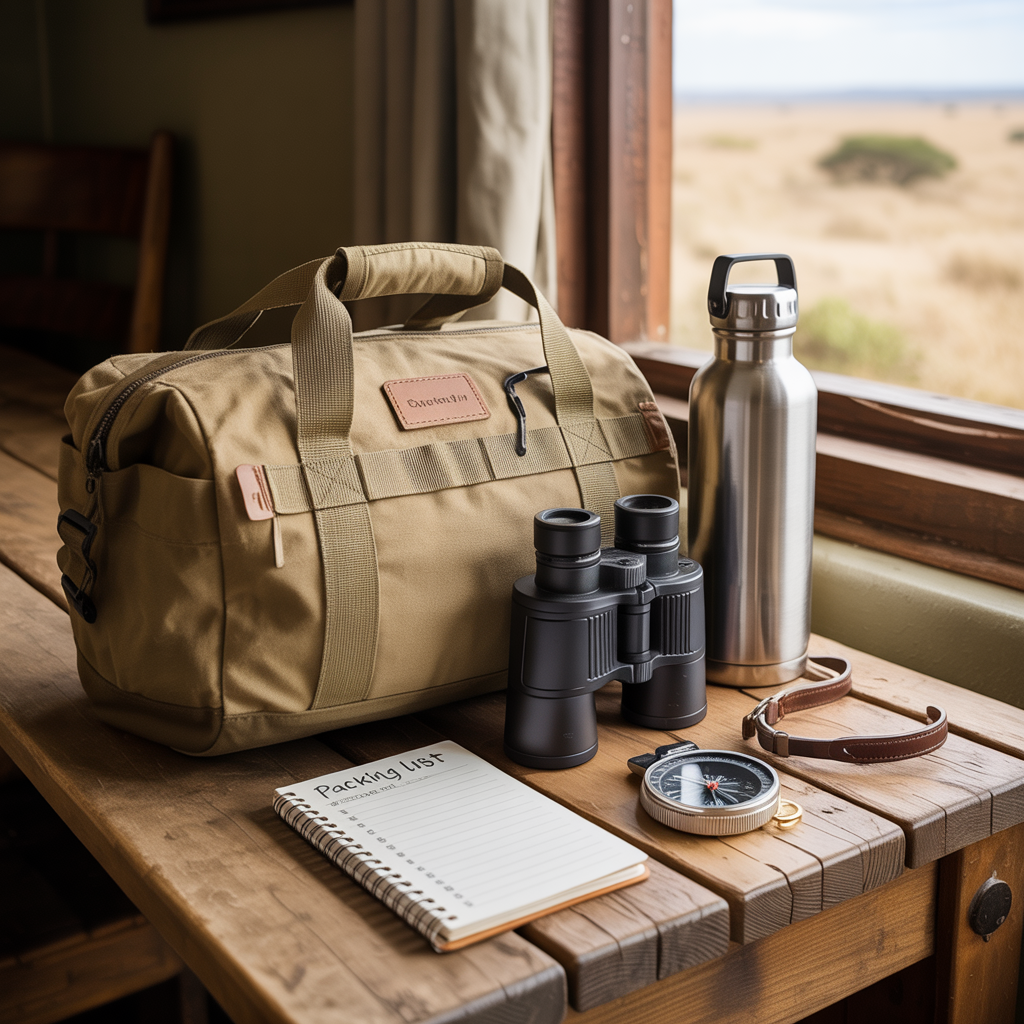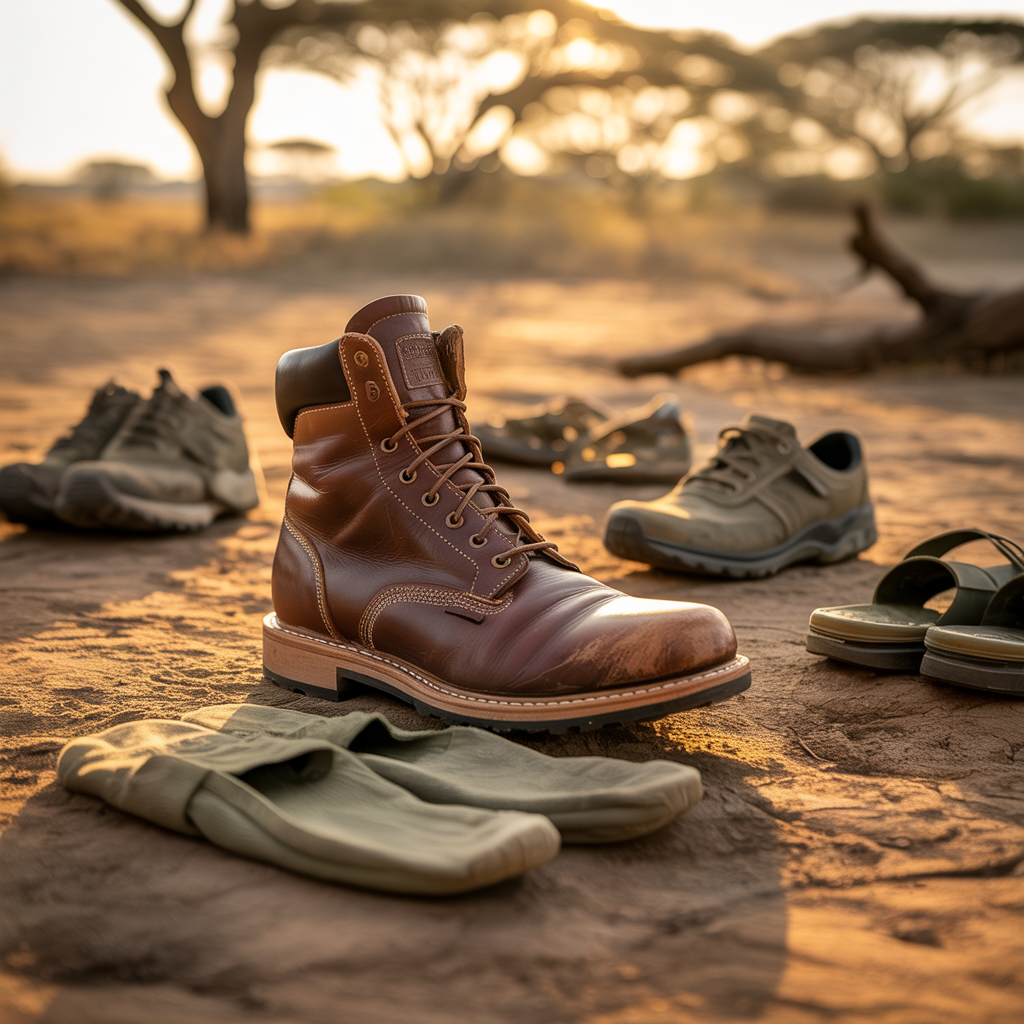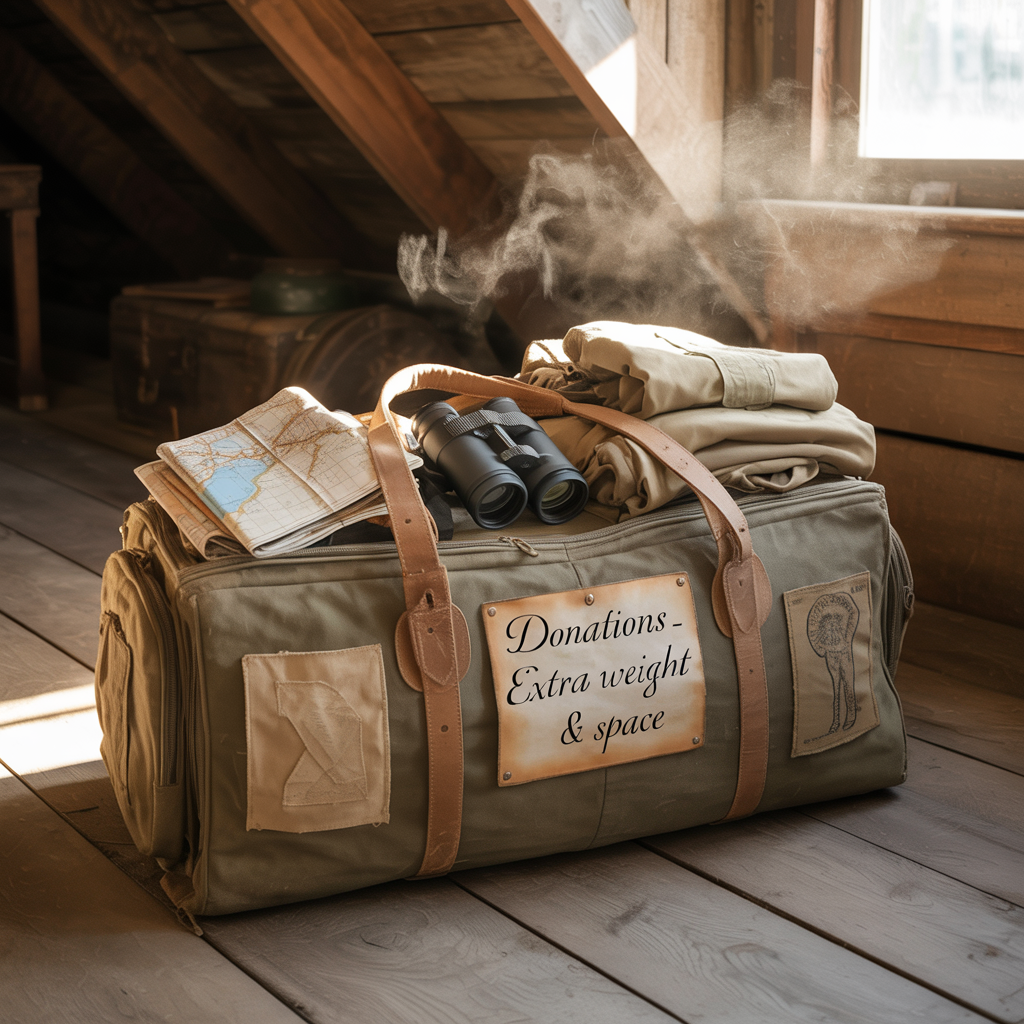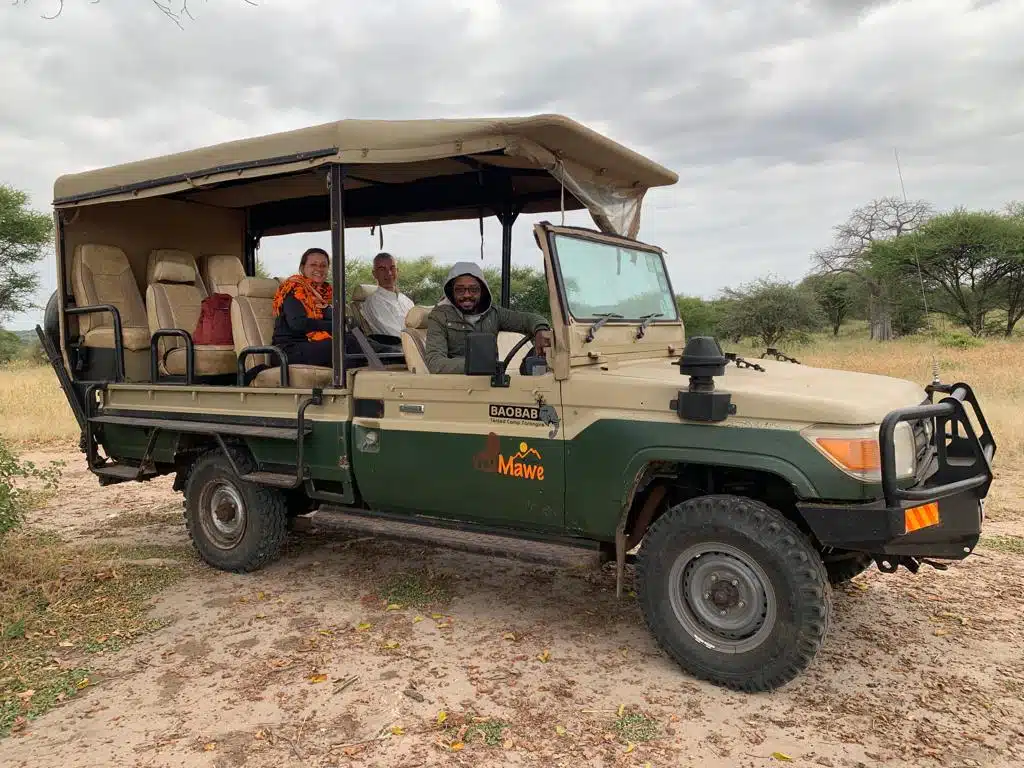When preparing for your next safari to Tanzania or a stay at any of our properties, it’s important to pack wisely to ensure a comfortable and enjoyable stay.
Packing for Tanzania; Clothing, Gears and Accessories
- What Cloth to Bring on a Safari
- Lightweight, breathable, and moisture-wicking shirts and pants.
- Long-sleeved shirts and pants protect against sunburn, insects, and cooler evenings.
- Light jacket or fleece for cooler temperatures, especially in the early mornings and late evenings.
- Hat or camp for sun protection.
- Comfortable closed-toe walking shoes or boots.
- Sandals or flip-flops for relaxing at the camps/lodge.
- Swimsuit for use in accommodation with a pool.

- What Safari Gear and Accessories to Pack for your Tanzania Safari
- Binoculars for wildlife viewing. We usually provide a pair of binoculars onboard our safaris; should you have a spare one to bring, please feel accessible to do so.
- Camera and extra memory cards/batteries
- Travel adapter and chargers for your electronics. Our camps use British-type plugs with 220V
- Flashlight or headlamp with extra batteries. This is useful for early morning, especially for the ones who are planning on doing a balloon safari.
- Small day pack for carrying essentials during game drives or walks.
- Ziplock bags protect electronics from dust or water.
- Personal Care and Health Kit:
- Insect repellant with DEET or other effective ingredients.
- Sunscreen with a high SPF.
- Hand Sanitizer or wet wipes.
- Personal toiletries and medications (including prescriptions).
- First aid Kit with essentials like bandages, antiseptic cream, pain relievers, etc.
- Prescribed drugs and copies of medicines.
- Miscellaneous:
- Travel documents (passport, visa, insurance, etc.) in a waterproof pouch.
- Money cash, credit/debit cards(our properties accept VISA, Mastercard, AMEX)
- Travel lock for your luggage
- Light rain jackets if traveling during the rainy season or taking walks in high highlands like Ngorongoro or Kilimanjaro.
- Scarf of bandana for dust protection.
Safari Footwear: What to Pack for Your Tanzania Adventure

When preparing for your Tanzania safari, choosing the right footwear is just as important as packing the right clothes. Whether you’re hiking through rugged terrain or enjoying relaxed game drives, the comfort and practicality of your shoes will make a big difference.
Planning to Climb Mount Kilimanjaro?
If your adventure includes trekking Kilimanjaro or exploring challenging trails, you’ll need:
-
High-quality hiking boots with good ankle support
-
Waterproof and broken-in boots to avoid blisters
-
Thick, breathable socks for long treks
Only Going on Game Drives?
For those focusing on game drives and lodge stays, your footwear can be more relaxed and versatile. Here’s what we recommend:
-
1 pair of closed shoes
Perfect for cooler mornings or evenings. Lightweight sneakers or walking shoes are ideal. -
1 pair of flip-flops
Great for showers, especially if you’re doing a camping safari, or for relaxing around the lodge or pool. -
1 pair of comfortable, breathable day shoes
Slip-on shoes, lightweight trainers, or sandals with straps work well for daytime use. -
Comfortable, breathable socks
Avoid thick cotton—opt for moisture-wicking materials to keep your feet dry and blister-free.
Footwear Tips:
-
Break in your shoes before your trip to avoid discomfort or blisters.
-
Keep them clean—Tanzania’s dust and mud can build up quickly, so a small brush or wipes can help.
-
Pack a small laundry bag for dirty socks and shoes.
Do Colors Matter on Safari?
Absolutely, they do—and here’s why.
When we think of a classic safari outfit, and what clothes to bring on a Tanzania safari, most people picture beige zip-off trousers, khaki shirts, a safari hat, and maybe a pair of binoculars around the neck. It’s not just a style choice; these colors are actually quite practical.
1. Neutral Colors Hide Dust
Tanzania’s safari destinations are full of dusty tracks, especially in the dry season. Whether you’re in the Serengeti or Tarangire, you’ll quickly notice how much dust a game drive can kick up. Beige, khaki, and other neutral tones help mask dirt and dust much better than bright or dark colors, so you’ll look cleaner and feel more comfortable throughout the day.
2. Avoid Disturbing Wildlife
Bright colors like red, yellow, or blue can startle or attract the attention of wildlife. Animals are incredibly sensitive to color and movement, and bold clothing could cause unnecessary stress—or in some cases, make you more noticeable to territorial animals. Neutral tones help you blend into the natural environment, allowing for more peaceful and closer wildlife encounters.
3. Protection Against Tsetse Flies
One of the lesser-known but critical reasons to avoid bright clothing, especially blue and black, is that these colors attract tsetse flies—biting insects that are known to transmit sleeping sickness (trypanosomiasis). These flies are active in certain areas like Tarangire and parts of the Serengeti, so dressing in light, neutral tones is also a health precaution.
Packing for a Good Cause

At Mawe Lodges, we believe in giving back to the communities that surround our properties. In partnership with The Dove Foundation, we support impactful projects in education, health, and community well-being in the areas of Arusha, Moshi, Karatu, Tarangire (Mbuyu wa Mjerumani), and Robanda Village.
Many local schools, children’s centers, and health facilities are in need of support. If you’re visiting and have extra luggage space, consider bringing along items for donation. Every small effort goes a long way.
Useful items may include (but are not limited to):
-
School supplies (pens, notebooks, backpacks)
-
Medical kits and first aid supplies
-
Sanitary products
-
Clothes and shoes (for children and adults)
-
Toys, games, and sports equipment
-
Books (for all ages)
-
Any other helpful materials
We can deliver your donations on your behalf or, if you prefer a more personal experience, we can arrange an itinerary that includes a visit to a school or center so you can donate directly.
Your generosity can create a lasting impact. Together, we can make a meaningful difference.
Remember to check specific requirements and recommendations of your safari with your consultant for a better advisable pack list based on your visit.


